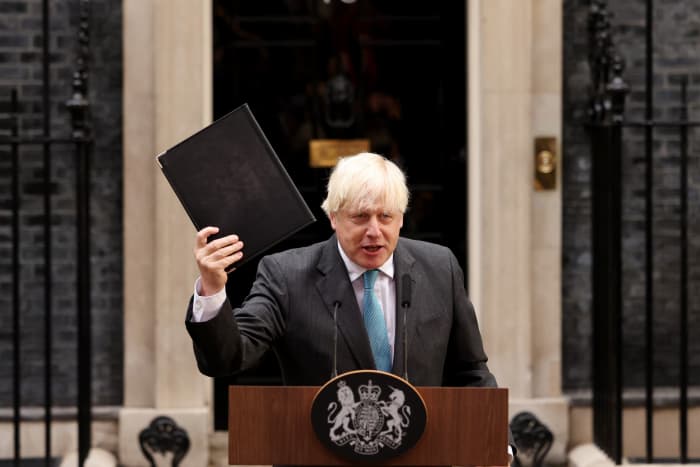The contest to succeed Boris Johnson as U.K. prime minister lasted seven weeks. The one to replace Liz Truss might last around seven days.
Truss announced that the leadership election to replace her will be conducted within a week. Graham Brady, the Conservative Party lawmaker who oversees leadership races, said it would be possible to conduct a ballot by Oct. 28. He said it was his “expectation” that members — not just lawmakers — would be included in the process.
The favorite to succeed Truss is Rishi Sunak, the former chancellor of the exchequer under Johnson and the second-place finisher in the leadership context. Sunak was more popular among Conservative lawmakers than Truss, and the Stanford-educated former hedge fund manager had warned that Truss’s planned policies would lead to financial chaos.
Sunak, however, struggled to win over the Tories’ more right-wing elements, even being called a “socialist” by Jacob Rees-Mogg. Sunak’s role in Johnson’s resignation also was not well received.
Penny Mourdant, in 2017.
Daniel Leal-olivas/Agence France-Presse/Getty Images
Penny Mourdant, the leader of the House of Commons, also took place in the leadership election, and briefly was the favorite in that contest — at one point stating, “my monetary policy will be on controlling inflation,” a comment suggesting she didn’t believe in the Bank of England’s independence. Mourdant stood in for Truss in Parliament over the questioning of why former Chancellor Kwasi Kwarteng was dismissed.

Boris Johnson delivering a farewell address
Dan Kitwood/Getty Images
What about Johnson himself? Polling shows that Conservative voters regret his resignation. Johnson, still a serving member of parliament, was vacationing in the Caribbean during the controversial vote over fracking in parliament on Wednesday. The U.K. Times reported that Johnson is expected to run.
Jeremy Hunt, the current chancellor of the exchequer, has ruled himself out as a candidate.

